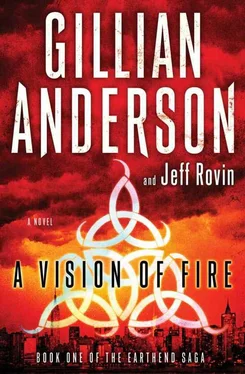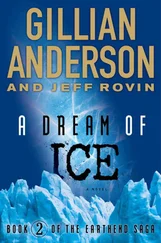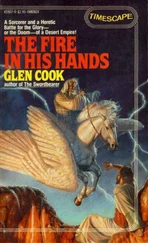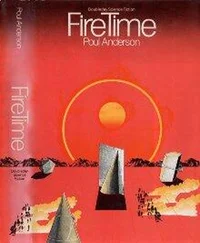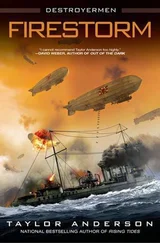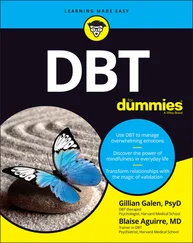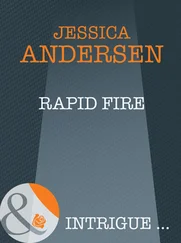“So you haven’t seen anything out of the ordinary?”
Anita shook her head. “Anything specific on your mind?”
“No, I was just wondering.”
“Lady, you never just wonder. What is it?”
Caitlin made a You got me face. “The tension between India and Pakistan. It seems to be knocking people off balance.”
“A couple of the kids mentioned that, but there’s so much hyperbole on the Web it’s tough to know what’s a real or a passing fear. A celebrity dies in a car crash, kids are afraid of cars for a day or two or three. Speaking of which, when you have the time, I want to talk about setting up focus groups on shared Internet and social media paranoia.”
“I like the idea,” Caitlin said. “Shared angst.”
“It’s like terrier frenzy,” Anita said. “One dog gets upset, so another dog gets upset because that dog is upset, making the first dog even more upset.”
“Right, you have two Jack Russells,” Caitlin said. “Do they do that a lot?”
“Every time the doorbell rings,” she said. “Funny thing is, for all its problems I bless the Internet every day, no exaggeration. The more cases I read, the more analysis that’s offered, the more I feel we can help people.”
Caitlin thanked her again for her help and began walking home. She was glad to hear that Anita’s dogs weren’t behaving out of the ordinary. She had enough trouble worrying about people without adding more animals into the mix. She kept wondering, though, about what Anita had said in relation to mass anxiety.
What’s that word for when a group turns this way and then that at the same time?
“Flocking,” that was it. Coming together in a group, banding for mutual protection from a danger, from fears that linger like a low, slow hum.
Like Neanderthals in their caves , she thought. Our brains have evolved but our bodies are still locked in the Pleistocene.
Caitlin suddenly felt as cold as if a deep winter wind had raced down the street toward her, but it wasn’t from thoughts of the Ice Age. It was an idea gleaned from what Anita had said. Banding together in a group happened not just in person but also through computers and phones and Wi-Fi. What if millions and millions of teenagers had flocked to the Internet and social media over the past twenty years not just because it made them feel like masters of their caves, carving their universe into manageable pieces. What if there actually was an external threat, barely sensed, that was causing them to flock like birds? What if Maanik and Gaelle and possibly Atash and who knew how many others were the first to semiconsciously pick up those signals?
My god , she thought. Were they that close to the cliff, as Ben had said? Was Pakistan the imminent threat? Was it a big enough threat for the type of global reaction she was envisioning? Or were they reacting to something else? Something bigger?
And if so, what on earth could that be?
Motahhari Hospital, Tehran
Atash Gulshan had been taken off the ventilator the day before, so the hospital room was unusually hushed. Now and then the corridors echoed with a rattling instrument trolley. Outside there was little traffic; it was one of the high-pollution days when only hospitals and banks stayed open. A sickly yellow-gray smog filled the window, partly obscuring the trees of the courtyard below.
The room had only the one patient. Two female nurses in blue uniforms and black scarves were changing the dressings on Atash’s legs. They worked silently, hoping not to be noticed and caught up in yet another argument about women tending to men. This relatively small hospital had not fared well against the national shortage of male nurses, yet the women’s service to Atash still provoked a debate with the male doctor whenever he visited. The end of the argument was always the same, the doctor shaking his head and saying, “For the brother of a criminal, I suppose it doesn’t matter who ministers to him. Change the bandages.”
Atash had received no visitors, no flowers, no bright quilt, no photographs, no other touches from home. He was an embarrassment.
One hour ago Atash had been given enough pain medication to prepare him for this twice-daily routine of circulation stimulation and rebandaging, leaving him in a waking dream state. His body was bolstered on all sides, propping him up and nearly immobilizing his upper body. The blanket was pulled up to his torso, covering his catheter tubes but leaving his legs exposed for the two nurses. The nurse working on his bandaged left leg was slowly manipulating his ankle joint so that he would have some chance of retaining full range of motion if he ever walked again. The nurse working on his right leg was removing his bandages. On his right foot and calf were fourth-degree burns. What scraps of skin remained were black. His heel had burned away to the bone and his calf muscles were raw shreds. Atash had burns on 90 percent of his body; it was a miracle he was alive.
“To suffer for the sins of his brother, that is why he lives,” a visiting cleric had murmured after inquiring who he was. The only compassion the young man received was from the two women who shouldn’t have been touching him.
• • •
Atash was barely aware of the miracle of his survival. In his waking dream he was running after his older brother, Rashid—no, somehow he was hovering above and behind him as Rashid was running a military-style parkour training through the city, sprinting hard, climbing walls, flipping over stairs, leaping fountains, all the while pursued by police.
“Don’t run, Rashid!” Atash called. “It will only make things worse!” But Atash already knew what the result of the trial would be. Homosexuality was the official “crime,” but drug trafficking and sedition would be added on to create the impression that homosexuals were all thoroughly debased.
Suddenly, the stocky figure of Rashid stopped running. He turned to Atash, who was now on the ground, facing him. He seemed different somehow. The air around them quickly filled with a kind of smoke, rolling in like a haboob in the desert. Only this wasn’t sand or smoke. Atash’s throat and eyes began to burn as if the air were misty with acid.
“Brother!” he cried, squinting into the haze.
Was that Rashid? It had to be. That’s who he had been chasing. Atash moved through the thickening clouds toward the indistinct shape.
“ Rashid! ”
The figure moved toward him in silhouette against the fog. Atash gagged on the choking sulfur, heard high winds rushing past his ears. He reached toward the figure even as the smoke swallowed it. “Come! It’s urgent now! We have to go!”
“Go where?” the other said in a voice that was like a sour song, melodious but off-key.
“Back,” Atash replied. “Back to the courtyard!”
His brother was yelling a reply, but while Atash heard the words, he had no idea what they signified. Something about boats… the sea…
“What are you saying?” Atash demanded. “I don’t understand!”
His brother was now entirely lost in the smoke but Atash could still hear his voice— a voice, shrill and frightened. “I am saying that you and the Believers, you’re insane!”
“And you’re blind!” Atash shouted back. But this time it was not his own voice he heard. It was higher, fairer.
“Blind? Your glogharasor are blind!”
His brother had shouted a curse—it meant “stupid sacrifices.” Atash did not know how he knew the meaning, but he did.
The figure suddenly appeared again through the smoke, only it was definitely not Rashid but somehow was still a brother. His skin was pale, his features unfamiliar. His layered attire was billowing in the strong wind, fastened to his chest with a strangely curving silver brooch. The figure picked up a bag like a seaman’s grip and grabbed Atash’s hand.
Читать дальше
